Sunday, November 25, is the United Nations’ International Day for the Elimination of Violence Against Women. It is also this month’s Orange Day. Unbound is pleased to share with you two stories from the Nonviolent Peaceforce, an unarmed paid civilian peacekeeping force among parties in conflict, providing a protective presence for threatened civilians. These stories highlight the incalculable importance of relying on and developing local leaders; women taking the lead; utilizing community resources and models; and the institution of routine practices, not a few one-time big events. Peacekeeping teams are presently deployed in the Philippines, in South Sudan, and the South Caucasus; and include veterans of conflict zones, experienced peacekeepers, and those new to the field. There are many ways you can get involved with their work.
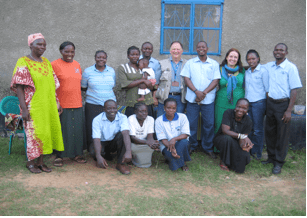 WOMEN PEACEKEEPERS
WOMEN PEACEKEEPERS
By Mel Duncan, Director of Advocacy and Outreach
I met with a Women’s Peacekeeper Team (WPT) made up of local women in the town of Nzara (on the border of South Sudan and the Democratic Republic of the Congo). They have been organized and trained by Nonviolent Peaceforce. This women’s team works on a variety of early warning/early response activities including helping with the return, integration, and protection of children who have been abducted by the Lords Resistance Army. While these activities are important by themselves, I found it even it more interesting when the women started telling me how they were taking their peacekeeping activities into the homes where women are often treated as property. They are intervening in early marriages, a situation that frequently occurs when families are facing economic hardship and therefore marry their girl children off in exchange for cattle. The WPT work with families to encourage them to stop the marriage and keep the girls in school. They are training other women to defend their children and bring cases of rape to court. They explained that they are always careful to work with the local chiefs and other male leaders.
I asked what they hoped for their daughters. First on their list is education. Then came:
- Strong, future leaders
- Aware of their rights
- Able to defend themselves and their generation
- Monitor their children
- Be an example for peace.
This conversation was not unlike discussions I witnessed in the late 1960’s in the USA. Pretty amazing work, in fact, revolutionary.

STOPPING SEXUALIZED VIOLENCE
By Mel DuncanLife is tough in Pibor a year after South Sudan became the world’s newest country. Grueling subsistence accompanies the pride of achieving independence. The new nation endures the world’s highest incidence of maternal death. The child mortality rate exceeds 10%. Every glimpse includes desperation and inspiration.
NP deployed 3 teams to the restive Jonglei state after inter-tribal fighting killed hundreds of people and resulted in the displacement of more than 120,000 in January. The UN High Commission on Refugees offered us a significant grant to provide peacekeepers in Jonglei. We had teams on the ground in less than 2 months.
The Pibor team is made up of five nationals and 3 internationals—two from the U.S. and one from Japan. Our expats live in safari tents on the banks of the river, .5 km upstream from a January massacre site. They eat a lot of rice, beans, Nutella, sorghum, bread, and occasionally goat or fish.
It’s rainy season. There is no access by road. I flew in on a UN helicopter. The mud resembles wet cement. We wear “gum boots.” At times we have to grip the tops of our boots to keep from leaving them in the mire.
Our team navigates the local area in a beat-up Toyota Land Cruiser that we have to push to pop the clutch to start each time. Aves miraculously drives us through puddles that would qualify as lakes in Minnesota.
When our team arrived in April, the women reported frequent incidents of sexualized violence including rape. These often happened as women went out to pump water, gather firewood, or tend the community garden.
David and Mary came forth as leaders of Kandako.
Meetings were called to strategize about the violence. For a women’s security meeting, Mary assured NP that she would bring the people. She showed up with 80 women.
People organized. They were creative. They connected. They took responsibility for their own security. They organized a phone tree. Unlike most rural areas in South Sudan, Kandako usually has reception, and cell phones are ubiquitous among the mud huts. An overall leader and ten sub-leaders were chosen. When threats appear, leaders are called, then NP, the local police, and the UN Police (UNPOL). People go to the scene to check out the threats.
Daily patrols have been established. NP convinced UNPOL and the UN armed peacekeepers, an Indian army unit, to each conduct a daily patrol. NP takes the late shift since the UN peacekeepers cannot leave their compound after dark.
The Indian peacekeepers have taken to pumping their water at the water point, an activity that extends their presence. To their amusement, the soldiers even pump water for the local women.
The women of Kandako reported to me that the incidents of sexualized violence have been eliminated: a dramatic result from simple organizing. The Kandako local security plan contains vital elements of unarmed civilian peacekeeping. First, it relies on the local community to organize and take responsibility for themselves. Local leaders are always there. Secondly, women play a lead role. Thirdly, when convened the community often knows what to do. External resources can be mobilized but to augment local work, not replace it. Forth, protection usually relies on the institution of routine practices, not one off events of the cavalry swooping in. And, this activity produces tangible results that make dramatic differences in real people’s lives.
NP shared the example of the joint peacekeeping patrols at a Protection of Civilians workshop sponsored by the UN in Juba. In response, the UN sent a VIP delegation to Pibor to explore this and specifically meet with our team and the local peacekeepers to learn about what we are doing. They are now considering replicating this approach around the country.
Learn more about the Nonviolent Peaceforce and its fieldwork in South Sudan
Take action and get involved
Invest in peace and purchase a peace bond, striking works of art that make great holiday gifts and equip peacemakers to enter conflict zones
Mel Duncan is co-founder and past Executive Director of NP. A graduate of Macalester College in St. Paul, Minnesota and the Center for Creation-Centered Spirituality in Oakland, California, Duncan has devoted himself to issues as diverse as peace in Central America, living wages, peace conversion of weapons industries, corporate welfare reform, nonviolent conflict resolution, opposition to nuclear waste storage in environmentally and culturally sensitive areas, and opposition to public financing of a baseball stadium. Prior to the creation of Nonviolent Peaceforce, Duncan founded and directed Minnesota Jobs With Peace, Advocating Change Together (a self-advocacy organization of people with developmental disabilities), and the Minnesota Alliance for Progressive Action. At the Hague Appeal for Peace in 1999, Duncan met David Hartsough and began work to launch Nonviolent Peaceforce, an effort that culminated in 2002 with NP’s convening event in Surajkund, India. Duncan and his wife Georgia have eight children and live in St. Paul, Minnesota, USA.

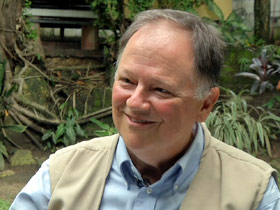
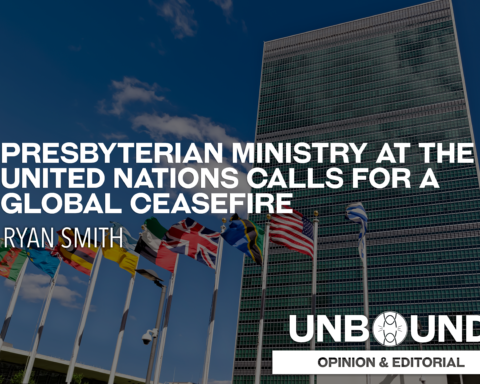
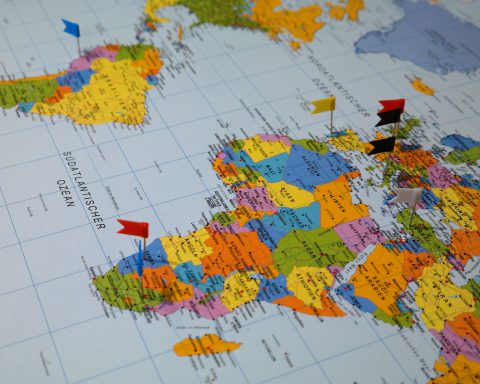


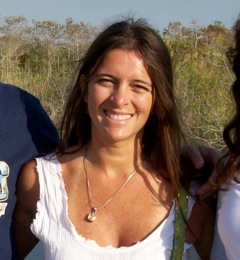
Unbound Social